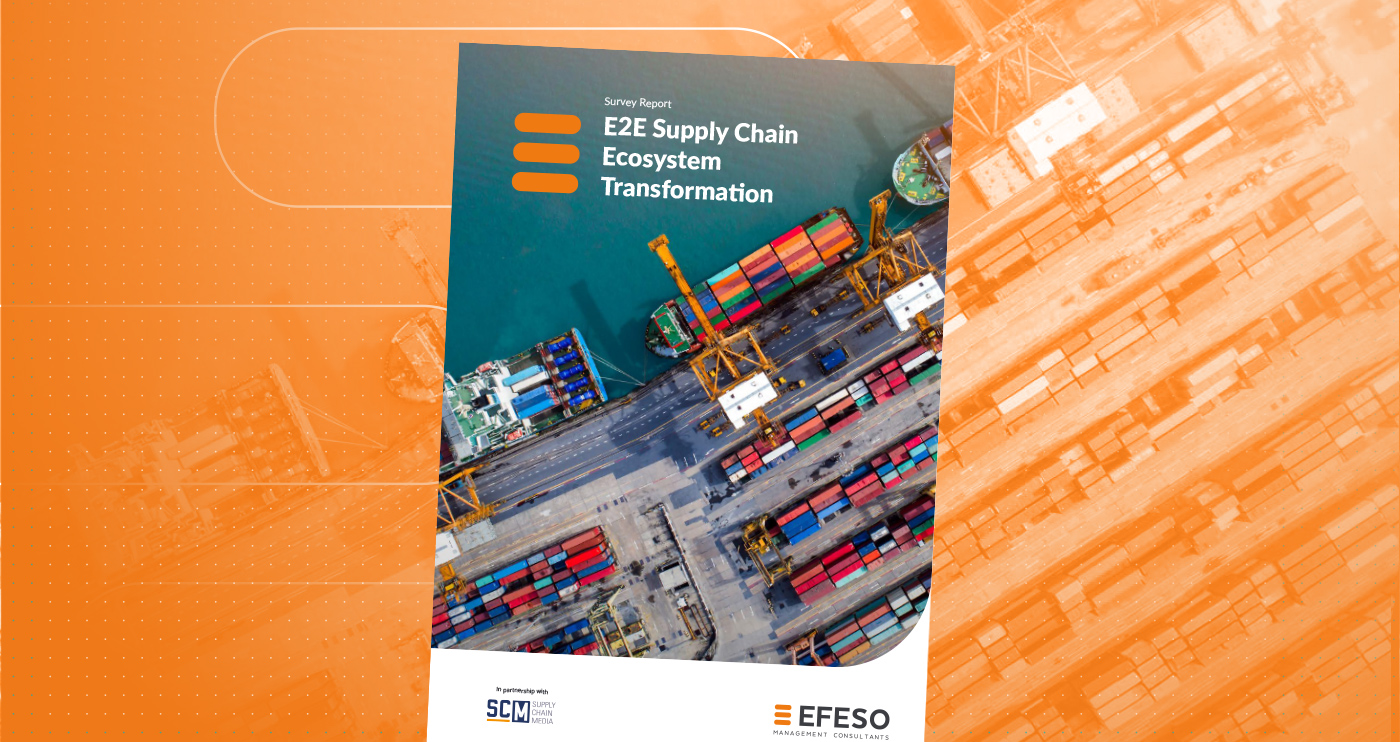- Define and differentiate customer requirements for delivery performance.
- Analyse and determine sales channels.
- Design order management (order-to-cash).
Supply Chain Strategy
The supply chain strategy describes a company's comprehensive plan for managing the flow of goods and services along the entire value chain – from the procurement of raw materials to delivery to the customer.
Appropriate processes, technologies, organization and partnerships define supply networks that secure competitiveness and reduce risks. The strategy thus forms the framework for operational supply chain management in order to realize an optimal combination of delivery performance (service level), delivery costs and inventories.
A key challenge is to be able to flexibly adapt the supply chain strategy to changing market conditions. These can be customer requirements, new competitive constellations, or technological innovations.
In addition, economic and ecological framework conditions must be taken into account. For example, efforts to decarbonize the supply chain can lead to the identification of economic sustainability potential and risks being integrated into the supply chain strategy. In some sectors, there is a trend towards decentralization of the supply chain and the use of regionally produced components and services.
Operationalization of supply chain strategies
With EFESO, companies develop and operationalize supply chain strategies that meet their individual requirements. Our services include:
- Deriving supply chain objectives from the corporate strategy.
- Formulation of market, competition, and environment scenarios.
- Recording the current and future requirements of the supply chain.
- Development of differentiated supply chain strategies (incl. supply chain segmentation).
- Integration with digitalization initiatives in all operations areas.
- Assessment and specification of the supply chain strategy.
- Presentation and discussion of best practices.
Together with our clients, we define the goals and framework conditions for operationalizing the supply chain strategy. The focus can be on the following fields of action:
Customer requirements and customer experience
Global and regional orientation
- Select production locations and determine desired degree of autonomy.
- Design integration into production and supplier networks.
Smart Supply Chain Management
- Define supply chain requirements for the IT strategy.
- Define the level of digitalization and automation for the supply chain(s), e.g. AI for decision support or supply chain control tower for E2E transparency.
Procurement strategies / comparison of variants
- Single vs. multiple sourcing.
- Make or Buy-Strategy.
- Modular vs. component sourcing.
- Regional vs. global sourcing.
- Strategic partnerships vs. transactional relationships.
Production and distribution strategy
- Determine multi-level production and distribution processes.
- Derive supply chain segmentation and alignment with production strategy (e.g., make-to-stock, make-to-order, assemble-to-order).
- Identify suitable decoupling points.
- Determine preferred transport routes and carriers.
- Design the organization of transport management.
Collaboration and partnerships
- Define principles of cooperation with external partners.
- Define process design and the binding nature of process models (e.g. SCOR® with Plan, Source, Make, Deliver).
- Design cooperation and integration with customers and suppliers (processes, systems, data).
Supply chain maturity and Supply Chain Performance Management
- Determine the maturity level of the supply chain (processes, organization, technology) and define service level.
- Carry out benchmarking.
- Formulate targets and KPIs for the supply chain.
- Determine methods for performance measurement.

EFESO-STUDIE: E2E SUPPLY CHAIN ECOSYSTEM TRANSFORMATION
How can supply chains be transformed in times of global uncertainty? The EFESO study “E2E Supply Chain Ecosystem Transformation” shows how over 100 SCM executives are focusing on resilience, agility and digitalization until 2027 - and why looking beyond your own company is becoming a success factor.
Read more ›













